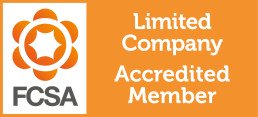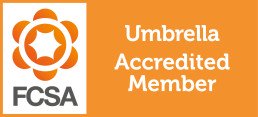Share this article

Thousands of contractors are now facing substantial tax bills as a result of the controversial Loan Charge. Whether they engaged with tax avoidance schemes knowingly or by mistake, the government is committed to reclaiming underpaid tax.
Thousands of self-employed contractors are now facing the reality of the Loan Charge
The BBC recently published an article about a contractor who had previously used a company to manage his admin and tax affairs – although unbeknownst to him at the time it was, in fact, a tax avoidance scheme.
John, as he has been named for the article, is one of an estimated 50,000 people who have been caught by the controversial loan charge. As a result, thousands of people like John are now under immense pressure to repay significant tax bills from using these tax avoidance schemes.
Workers were often referred to these schemes by their recruitment agency, accountant or other intermediaries. They were promised take home pay upwards of 80% while remaining compliant with UK tax law.
As part of a loan scheme, workers would receive a small amount of salary as standard taxable income. The rest would be paid in the form of a loan which would be untaxed. Workers engaging with these schemes were told this payment was non-taxable because the loan does not technically count as income.
In reality, these loans were never intended to be repaid, and therefore the payment is no different to regular income and should have been taxed.
The government has since closed this tax avoidance loophole and is using the Loan Charge to reclaim large sums of unpaid taxes from contractors and freelancers who have previously used a tax avoidance scheme.
What is the Loan Charge?
The 2019 Loan Charge is a piece of legislation that HMRC has introduced as a way of reclaiming underpaid tax from anyone who has engaged with a tax avoidance scheme. HMRC can reclaim underpaid tax to any unsettled loans made on or after the 9th December 2010.
Unfortunately for affected contractors and freelancers, it doesn’t matter whether they used these schemes deliberately or were misled and had no idea they were using a tax avoidance scheme – HMRC will demand every penny.
This is why you should never engage with a tax avoidance scheme. Just because the scheme is currently not known to HMRC, it does not mean it will not be discovered and closed in years to come. By this point, the senior professionals behind the tax avoidance scheme will disappear as quickly as overnight – leaving you to face an HMRC investigation.
What could happen if HMRC finds you have used one of these schemes?
If you are sent an accelerated payment notice, you will be required to pay the outstanding tax upfront while HMRC investigates the loan scheme. You may also be required to pay Inheritance Tax if you were paid a loan through a trust.
What should you do if you think you are using a tax avoidance scheme?
If you believe you are currently using a tax avoidance scheme, we strongly advise you to withdraw from it immediately and settle your tax affairs with HMRC.
By notifying HMRC as soon as possible, you could potentially avoid the cost of an investigation and litigation, and minimise the interest due on the tax you should have paid.
How to spot a tax avoidance scheme
Thankfully some tell-tale signs can help you spot a tax avoidance scheme; these include but are not limited to:
- They are advertising 80% – 90% take home pay retention.
- You’re told you do not have to declare the scheme to HMRC.
- The registered office is in a known tax haven such as the Cayman Islands or the Channel Islands.
- They use bizarre statements such as “fully legal” or “approved by HMRC” on their website or advertisements.
- They offer email support only or are difficult to contact by phone.
There is lots of information available which you can use to help you spot a tax avoidance scheme, and we cannot stress enough the importance of conducting your due diligence before registering with an umbrella company.
The importance of only using compliant umbrella companies
With the upcoming rollout of the off-payroll legislation in the private sector (closely mirroring the public sector rollout), the importance of working through a compliant umbrella company is now more imperative than ever.
Churchill Knight Umbrella is fully compliant with all UK tax law and would never offer a tax avoidance scheme. We are proudly accredited by FCSA and are annually audited to ensure our internal processes are compliant with HMRC guidelines. Rest assured you are in the safest hands when you register with us!
To find out more information about us, please give our friendly team a call on 01707 871622 or request a callback, and we will contact you at your preferred time.
About Churchill Knight
Founded by an IT Contractor in 1998, Churchill Knight has become one of the most respected contractor accountants in the UK. We’ve helped over 20,000 contractors with their accountancy requirements. As well as our accountancy services, we also have an industry-leading PAYE umbrella company and dedicated in-house personal tax department. Whichever service you choose, you can move forward with complete peace of mind. We are proud of the reputation we’ve built over the years, and our FCSA accreditation proves how committed we are to compliance within our sector. Keep reading…


We're regularly adding new, helpful content
The Churchill Knight blog is regularly updated with helpful content for contractors and freelancers – especially articles that answer the most frequently asked questions about umbrella companies! Please pop back shortly to see the latest articles written by Andrew Trodden (Marketing Manager) and Clare Denison (Marketing Executive).
